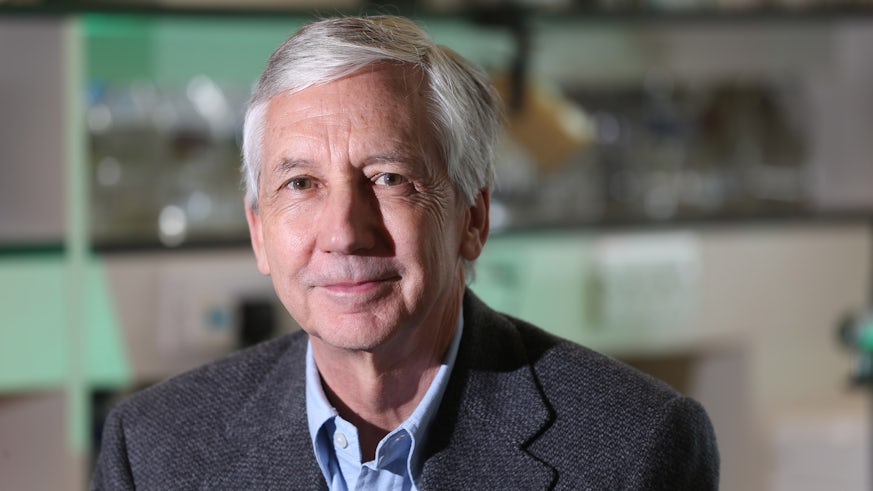Fellow of Royal Society
8 May 2017

Professor Yves Barde, from Cardiff University’s School of Biosciences, has been elected as Fellow of the Royal Society.
The Royal Society is a Fellowship of many of the world's most eminent scientists and is the oldest scientific academy in continuous existence. 50 new Fellows and 10 new Foreign Members have been announced today.
Professor Barde will become the third Royal Society Fellow in the University’s School of Biosciences, joining Professor Alun Davies and Professor Ole Petersen.
“Outstanding contribution”
Professor Colin Riordan, Vice-Chancellor of Cardiff University, said: “I am delighted that Professor Barde has achieved this recognition...”

“His appointment to Royal Society Fellow is testament to his outstanding contribution to the fields of neuroscience and stem cell research – areas that tackle some of the biggest health challenges of our time.”
A world-leading neurobiologist, Professor Barde joined Cardiff School of Biosciences in 2013 from the Biozentrum at the University of Basel to take up the position of Sêr Cymru Research Chair in Neurobiology.
World-class science researchers
The Sêr Cymru campaign aims to enhance research excellence by attracting world-class science researchers and their teams to Wales to increase Wales' share of funding from UK Research Councils as well as from the European Union.
The biggest breakthrough of Professor Barde’s research career was the discovery and cloning of a protein essential for a number of processes, including memory in humans. This vital brain protein, known as the brain-derived neurotrophic factor (BDNF), is needed for the development and maintenance of a healthy nervous system. His work also led to the identification of a family of related proteins - the neurotrophins.
Professor Barde said: “I am absolutely delighted to have been nominated Fellow of the Royal Society, one of the most prestigious learned societies in the world...”

“With the help of a number of colleagues at Cardiff University we are now trying to better understand the role of BDNF in the human brain and whether this growth factor can be used as a biomarker to monitor conditions such as neurodegeneration.”
Professor Barde has been recognized by many organizations: he is a Member of EMBO, received the IPSEN Award and the Charles A Dana award in 1994, and the prestigious Perl UNC Neuroscience Prize in 2004. He is an External Scientific Member of the Max Planck Institute for Neurobiology in Martinsried and a former Director of it. He left the Max Planck Institute for Neurobiology following an offer to become Director of the Friedrich Miescher Institute in Basel, before becoming Professor of Neurobiology at the Biozentrum in Basel - a leading research institution in Switzerland.
Share this story
The School has an international reputation for its teaching and research, and offers some of the top research-led bioscience curricula in the UK.

